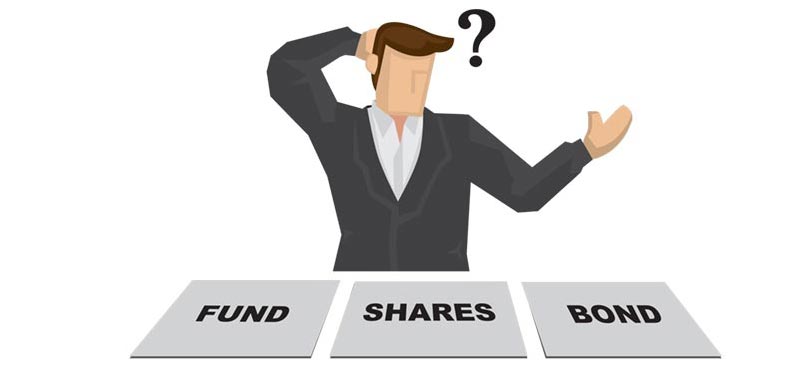More Than Just
Boring Definitions

Now, let’s review the different types of investments or securities that can go into your investment accounts
Stocks, shares, equities, ETFs, Mutual Funds and fixed income investments like bonds, GICs, and preferred shares are all different types of investments or securities.
STOCKS, SHARES and EQUITIES
A stock or share is a type of investment or security
known as equity.
A stock or share signifies part ownership in a corporation and represents your claim on part of that corporation's assets and earnings. If you own 300 shares of a company that has 500,000 shares in total, then you own .06% of the whole company.
Companies issue stocks, shares or equity to raise money to use in the business, i.e., for research and development, buy inventory or perhaps for an acquisition of another company.
EXCHANGE-TRADED FUNDS (ETFs)
An exchange traded fund (ETF) is a type of security or investment.
An exchange-traded fund (ETF) is an investment that can own a basket of shares from different corporations or companies. For example, there is an ETF that tracks or mirrors all of the corporations or companies that form part of the Toronto Stock Exchange Index.
An ETF can also hold bonds, or other assets in alignment with their investment objectives. ETFs are created by large investment companies like Blackrock or Vanguard. These companies collect money from individual investors, i.e. when you buy an ETF on the stock exchange, and then invest that money in the shares of companies so that it is easy for individual investors to get low cost diversified portfolios.
MUTUAL FUNDS
A mutual fund is a type of security or investment
A mutual fund is an investment that can own a basket of shares from different corporations or companies. For example, there is a mutual fund that tracks or mirrors all of the corporations or companies that form part of the Toronto Stock Exchange Index.
An mutual fund can also hold bonds, or other assets in alignment with their investment objectives. Mutual Funds are created by large investment companies like CI Investments or Mackenzie. These companies collect money from individual investors, i.e. when you buy a mutual fund, and then invest that money in the shares of companies so that it is easy for individual investors to get diversified portfolios.
FIXED INCOME INVESTMENTS
Fixed income securities can include bonds, preferred shares, and guaranteed investment certificates (GICs),
among other vehicles.
ANNUITY
If you are less than 60 years old
you really don’t need to worry about this product.
An annuity is a contract typically sold by an insurance company and designed to provide income to the annuity holder, usually in retirement. Basically, the buyer or holder of an annuity contributes a lump sum upfront, in exchange for a guaranteed series of future payments back to yourself.
